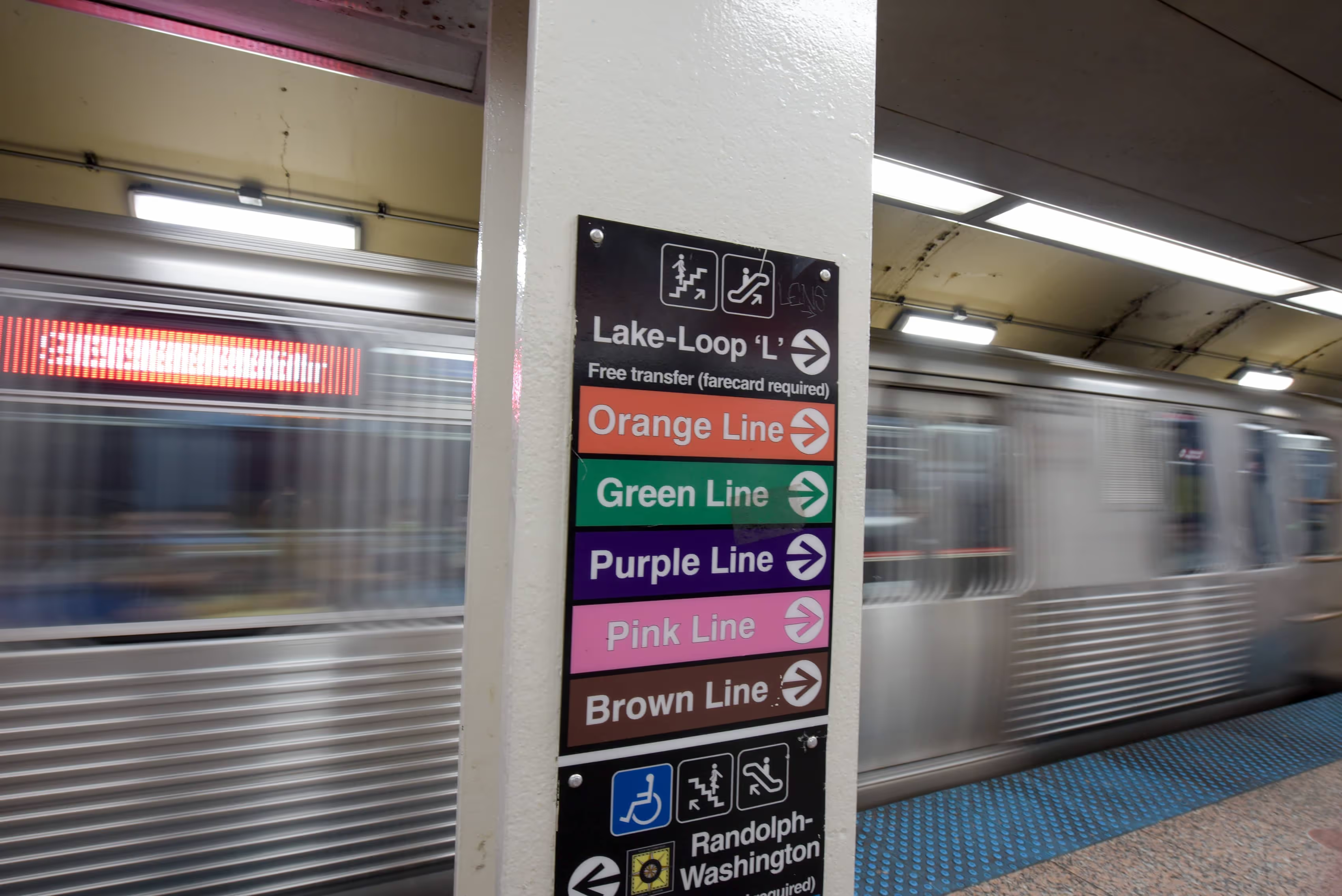While Crying for More Money, Chicago Transit Authority Pays Workers to Stay Home

To save the CTA, the transit system should shrink the size of its workforce
A recent report reveals that the Chicago Transit Authority (CTA) paid some workers to "work from home," even as the public transit agency is crying poor and claiming it needs millions more tax dollars to continue operating.
According to a Chicago Tribune expose, about 10 employees in the CTA's "vault operations" were allowed to work from home two days a week for a period of about five years.
The vault operations department is responsible for processing the cash taken in by CTA ticket sellers. The Tribune reported that these employees could not actually perform any of the duties from home because their jobs entail hands-on, in-person work.
Nonetheless, these workers were paid about $303,932 to “work from home” from May 2022 until February of this year, an Office of Executive Inspector General (OEIG) report says. The report adds that several CTA managers were made aware of the situation but "took no action to reduce or stop such waste."
The OEIG report noted that some policies of allowing CTA workers to work from home was justified during the pandemic (starting in 2020 through 2022), but the practice wasn't ended once the pandemic years passed and remained in place all the way to early 2025.
The OEIG investigators added that "No justifiable reason for this continued payment was provided in any CTA documents or by any of the relevant CTA employees interviewed."
OEIG was also unsure if there are more than these 10 employees still enjoying "work at home" status without justification.
In response, CTA spokesperson Catherine Hosinski said that the managers who approved this abuse have been fired and no longer work for the CTA. Hosinski added the agency has "accepted and implemented all the resulting recommendations to strengthen its policies and practices."
Meanwhile, the CTA claims it is suffering from a $770 million budget shortfall and is pleading with Democratic Governor JB Pritzker to pony up more cash in his budget negotiations with the state legislature, WGN-TV reported.
Despite the CTA's pleas, state legislators wrapped up their spring session without adding more money for Chicago's public transit systems. And even as the Democratic legislature voted for a $55.2 billion budget for the next fiscal year, no new money for the CTA was included.
As the debate came to an end, not one Republican voted for the bill. They were joined by only two Democrats, Rep. Stephanie Kifowit and Rep. Lawrence Walsh. Neverhteless, since the Democrats have a death-grip on Springfield, the protest votes came to no useful end.
Meanwhile, without more support from Springfield, the CTA claims it will be forced to make major cuts, both in service to riders and in its operations and workforce. The CTA has warned that bus routes will be reduced or even cut altogether, but has not yet specified just what lines are on the chopping block. They also noted that fares will be raised by at least 10 percent, as Evanston Roundtable reported.
The CTA is not the only mass transit organization in Chicago that is crying poor and arguing for even higher levels of state funding. The Regional Transport Authority, Metra, and Pace are all angling for more of our tax dollars.
Of course, while crying for more cash, the CTA continues to suffer from lower ridership. Usage of the troubled transit system remains at about 60 percent of its pre-pandemic numbers, according to the Illinois Policy Institute.
Still, in an attempt to convince Springfield to cut loose with more money, Chicago's "progressive" mayor, Brandon Johnson, has continued to claim that mass transit ridership is increasing. This, though, is based on a little sleight of hand. While it is true that ridership has increased slightly each of the last few years, it still has not come near its pre-pandemic numbers when the agency's budget was millions smaller.
According to 2024 numbers — the last year we have complete data for — CTA ridership reached 309.2 million rides. However, in 2019, just ahead of the pandemic years, the CTA earned itself more than 456 million rides.
To put a fine point on it, the CTA was able to effectuate 456 million rides in 2019 with a budget of $1.552 billion. By 2024, though, that budget soared to $1.996 billion, while the transit service only gave 309.2 million rides.
There are some moves that can help alleviate these shortfalls, of course. One big solution would be to eliminate all duplicative agencies and roll all authorities into just one agency. This plan alone could eliminate hundreds, if not thousands of redundant workers.
Even if it is not implemented, at least in the CTA’s case, there are still a lot of unnecessary employees that can be cut. The transit authority’s labor costs have grown to $1.50 billion, up from the $1.31 billion just in 2021. Even as ridership has cratered. Obviously, there is room to trim the fat here.
But, if the example of these unnecessary work-at-home policies is any indication, it is clear that there is a lot of waste and abuse that needs to be rooted out and cut down to size.
